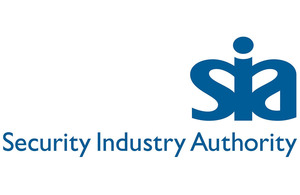GC team publishes scientific papers on honey authentication
The papers, Honey authenticity: the opacity of analytical reports – part 1 defining the problem; and part 2, forensic evaluative reporting as a potential solution are based on a story that appeared in the UK media in November 2020, Supermarket brands of honey are ‘bulked out with cheap sugar syrups made from rice and corn’ after which the Food Standards Agency asked the Government Chemist to investigate the methods that underpinned the story.
The papers, co-authored by Professor Duncan Burns, Emeritus Professor at the Institute for Global Food Security (IGFS), Queen’s University Belfast, and Prof. Michael Walker who also led the investigation at the time, as Head of the Government Chemist programme at LGC – address the complex composition of honey, and how an interpretive system used in forensic science could help to improve evaluation of analytical findings and assessment of their strength, which, in turn, can help to make authentication of honey more robust.
Summing up the papers, Professor Walker said, “The composition of honey, a complex natural product, continues to challenge analytical methods attempting to determine its authenticity particularly in the face of sophisticated adulteration, despite ongoing research.
“The analytical work behind the original news story threw up some interesting questions. Our assessment was informed by consensus views in the scientific literature confirming that multiple approaches are needed to assess honey authenticity. This inevitably leads to complex data. The summary opinion of the reporting laboratory in each of the Certificates of Analysis that were examined was unequivocally that the samples were non-compliant. However, our critical examination of the data revealed a much more nuanced picture from which it is currently difficult to draw such a definitive opinion. Our proposed solution of ‘evaluative reporting’, would see the acceptance of a formalised ‘likelihood ratio’ (LR) thought process used in forensic science for evaluation of findings and assessment of their strength. In the absence of consensus on techniques for honey authenticity, adoption of evaluative reporting will allow objective assessment, with equity to all, and a better basis to identify and address fraud.”.
Following the Government Chemist research on honey authenticity testing, Defra will continue to work with the FSA and key interested parties to ensure that honey on sale in the UK meets our high standards. Honey is a complex natural product but consumers should rightly expect it to be authentic; collaboration with recognised experts and key partners will ensure effective tools are in place to detect fraudulent practices.
For more information about the work of the Government Chemist please contact:
